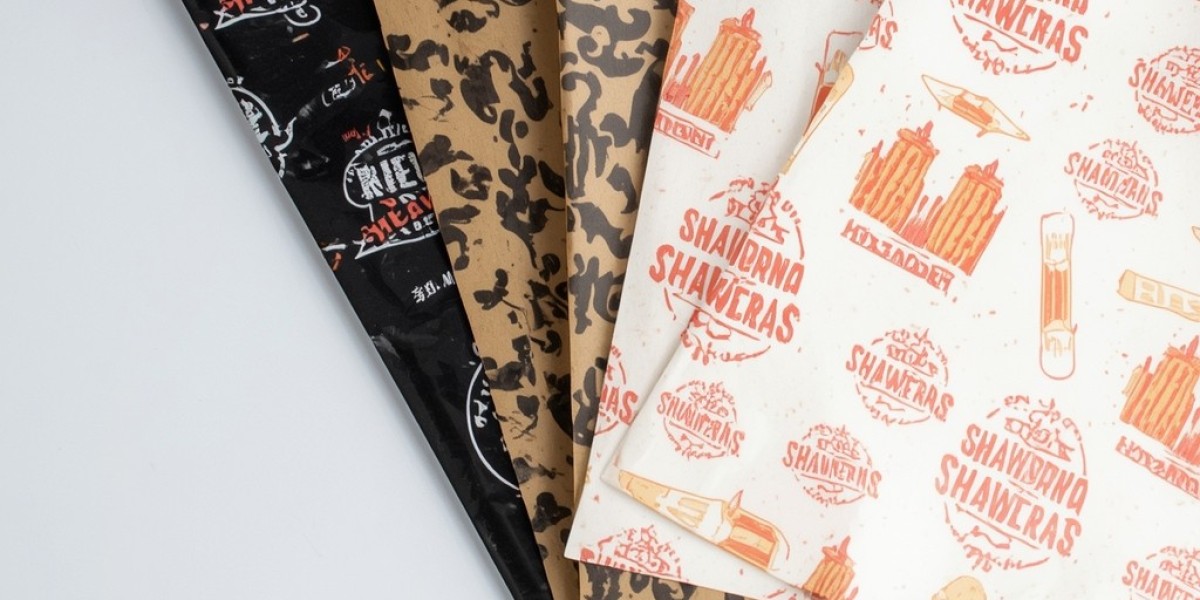Food packaging is an important component that guarantees quality, cleanliness and presentation of foods such as custom shawarma paper. Its oil resistance is one of the most significant characteristics as it defines the effectiveness with which the paper prevents oil leaking and sauce accidents.
Oil resistance is also important to be tested in order to ensure that the paper does not fall short in providing service to the customer by leaving their hands and packaging dirty. In the case of shawarma merchants, this testing is quite indispensable to shawarma food handling and delivery since it confirms the strength and protection feature of paper. Manufacturers ensure the performance and presentation of the food business in the markets by conducting accurate testing.
Significance of Oil Resistance
The greatness of Shawarma Paper Canada is that it is resistant to oil and water. Shawarma fillings are high in terms of sauces, oil and spices, which can easily pass through the weak paper materials. The oil resistance test is to maintain the structure of the paper so that it does not remain too wet when wrapped and served.
Manufacturers conduct standardized tests to determine the absorption and quality of barriers. Such tests ensure that the paper has high protection and can be used even when it is warm or greasy. Both the food and customer experience remain clean with strong oil resistance, which supports the quality image of the brand with each serving.
Testing Methods Overview
The tests on oil resistance on printed shawarma paper include real-life and laboratory tests. The most used ones are the kit test and Cobb value test, which are used to determine the capacity of the paper to repel oil and grease. In such tests, the paper is subjected to known conditions of oil to determine staining, absorption, and penetration time.
Findings indicate improvement of coatings or materials required. These elaborate analyses show that even printed designs are not smudged despite being subjected to heat and oils. Reliability and visual durability, which are very important in food-service performance, are proven by proper testing.
Material Composition Role
The shawarma paper wrap performance is based on the composition. The test is done on the quality of the paper fibres, the layers of coating and bonding agents. The use of high-grade fibres with special coatings gives a high level of oil barrier without interfering with the flexibility. Manufacturers use test results to choose the best materials that would not be affected by oils seeping.
Other tests would simulate long-term contact with oily foods to establish endurance. These researches are useful in creating shawarma papers that are lightweight enough to allow control of thickness, flexibility, and the ability to absorb moisture so that each wrap can be used effectively in the process of preparation, transportation, and eating without tearing or spilling.
Measuring Coating Efficiency
In the case of the shawarma paper wrapper, the coating is crucial in the process of repelling grease and oil. Coatings are tested using different types of oil under different temperatures. This is done in order to identify the effect of the coating layer when subjected to pressure, whether it is intact or starts to degrade.
Good quality finishes are created into a smooth, stable surface of heat, which does not absorb oil or stain. These tests are performed to guarantee that the wrapper does not interfere with the protective barrier and does not pose a danger to food safety and appearance. The assessment of coating functionality is important in the production of papers capable of fulfilling the commercial food handling requirements.
Evaluating Structural Integrity
Strength and flexibility in the presence of oil are the key performance testing factors in shawarma wrapping. Structural integrity tests model real-life situations, like wrapping warm, oily shawarmas or keeping them to take away. Manufacturers determine how the paper is able to bend, fold and hold without tearing or delaminating.
This is to ensure that the product is of the same quality in the kitchen to the customer. The results of testing are used to influence changes in the way things are made, such as the coating thickness or bonding method. Structural integrity in oily conditions ensures that the end consumers have a mess-free, pleasant dining experience.
Looking at Real-Life Situations
Experimental work on shawarma wrapping paper gives insights beyond artificial conditions in the lab. Food chains and restaurants conduct trials to determine the performance of the paper in the day-to-day activities. Such tests as wrapping hot shawarmas, delivering, and storing ready meals are involved. The time of oil penetration and the appearance of the stain are noted by the observers.
Practical use of the paper confirms or refutes the assertion of the paper about maintaining cleanliness, grip and presentation during peak hours. With replication of the real use, they can be assured that the papers will have reliable resistance to oil, thus their packaging standards would remain consistent with expectations of their customers and the presentation goal of their foods.
Branding and Ink Durability
In businesses which are based on shawarma paper with a logo, oil resistance testing is not limited to the strength of the material; it also involves print performance. The surface of the paper should be capable of resisting the smudging, fading and transfer of printed inks in the presence of oils and heat.
Testing makes logos stay sharp and lively and increases a brand's visibility and professionalism. This will ensure every packaged shawarma is a reflection of the business in its finest. Brand perception is the balance between the quality of print and resistance to oil, and this is where testing becomes a key factor in ensuring that food is appealing to the sigeyed safe to consume in the market.
Quality Assurance in Bulk
Custom shawarma paper wholesale suppliers serving restaurants and franchises should be very consistent. Mass production necessitates that all the batches have the same oil resistance. The testing of a random sample will make sure that all the rolls or sheets are of the same high quality. This averts the difference in the performance that might affect brand reliability.
Quality assurance testing by wholesalers verifies that papers are capable of operating at varying temperatures, oil and handling pressures without failure of functionality. The frequent testing is done on production cycles to ensure durability and performance, thus food businesses can be sure of their packaging regardless of the quantity of orders.
Conclusion
Finally custom shawarma paper will be better in quality and durability by performing careful oil resistance tests. All the tests in the category of coating evaluation under real performance conditions also make sure that the paper is strong enough to stand up in conditions of oil and heat, as well as maintain the way food is presented. The difference in packaging between an average and a professional is determined by oil resistance.
The companies that are concerned with tested shawarma paper will have better serving conditions, their brands are more powerful, and customers are happier. All such testing activities ultimately see to it that each meal packaged with fine paper portrays durability, accuracy and trust, making normal food service into a branded experience.








